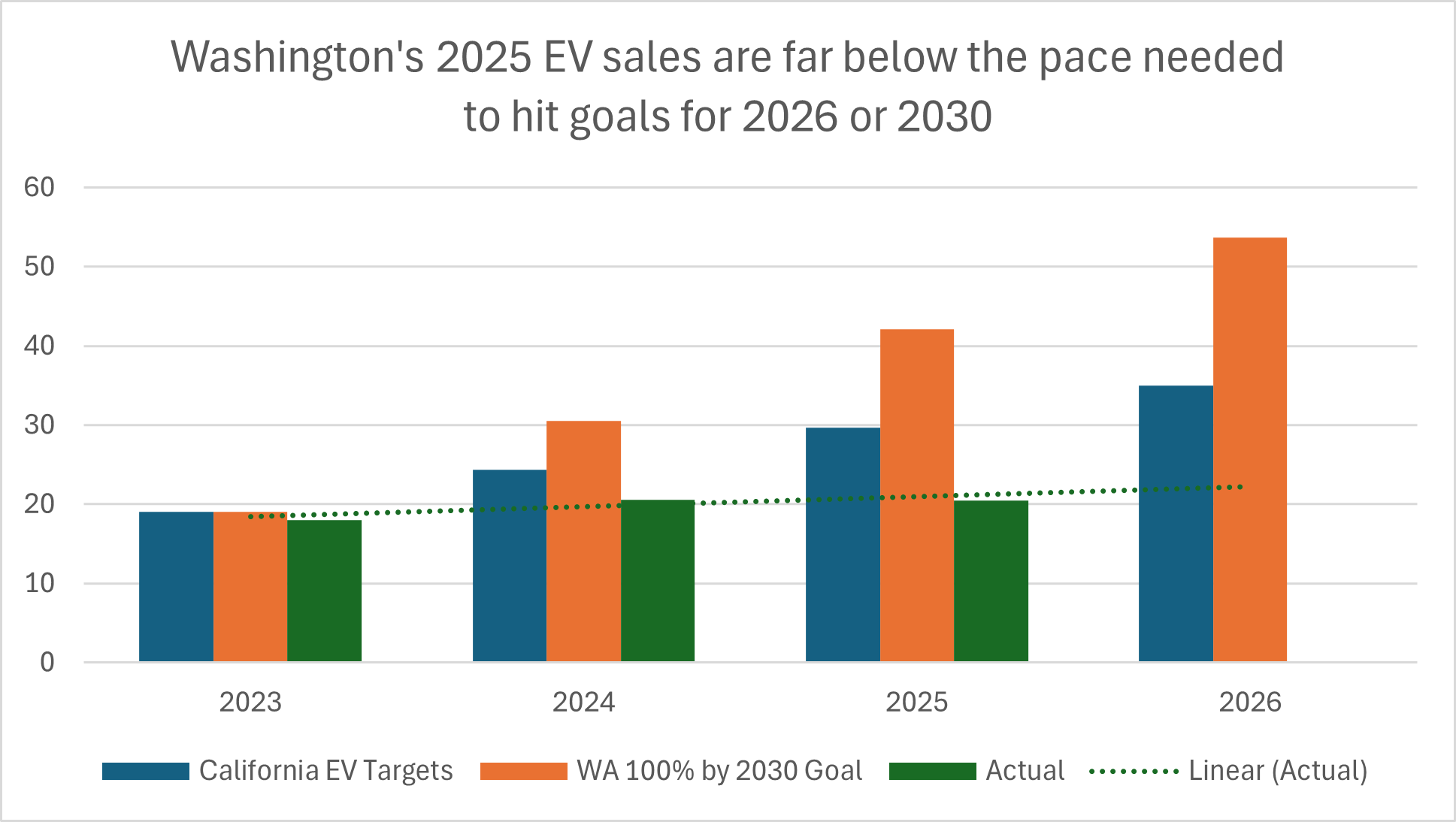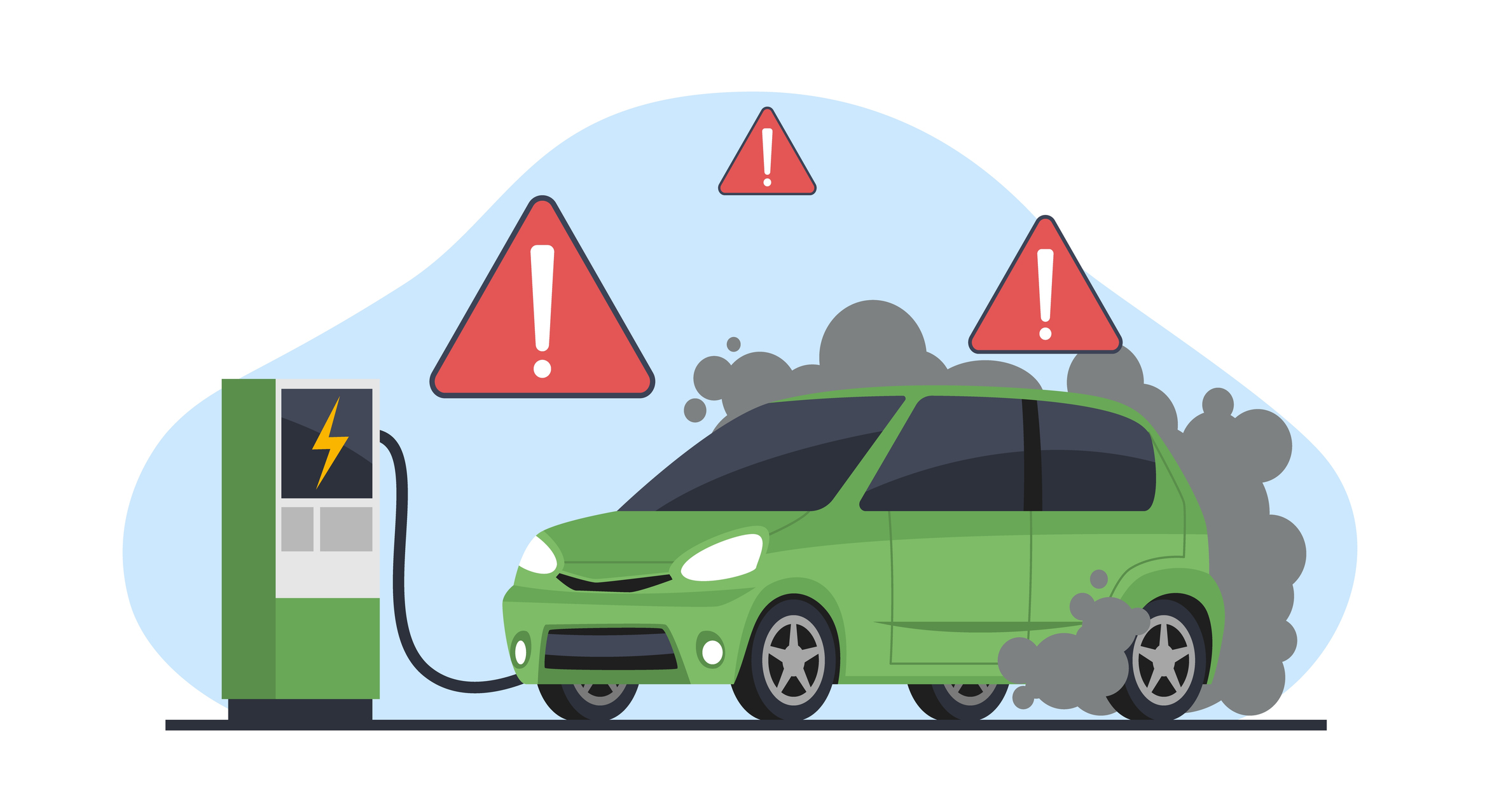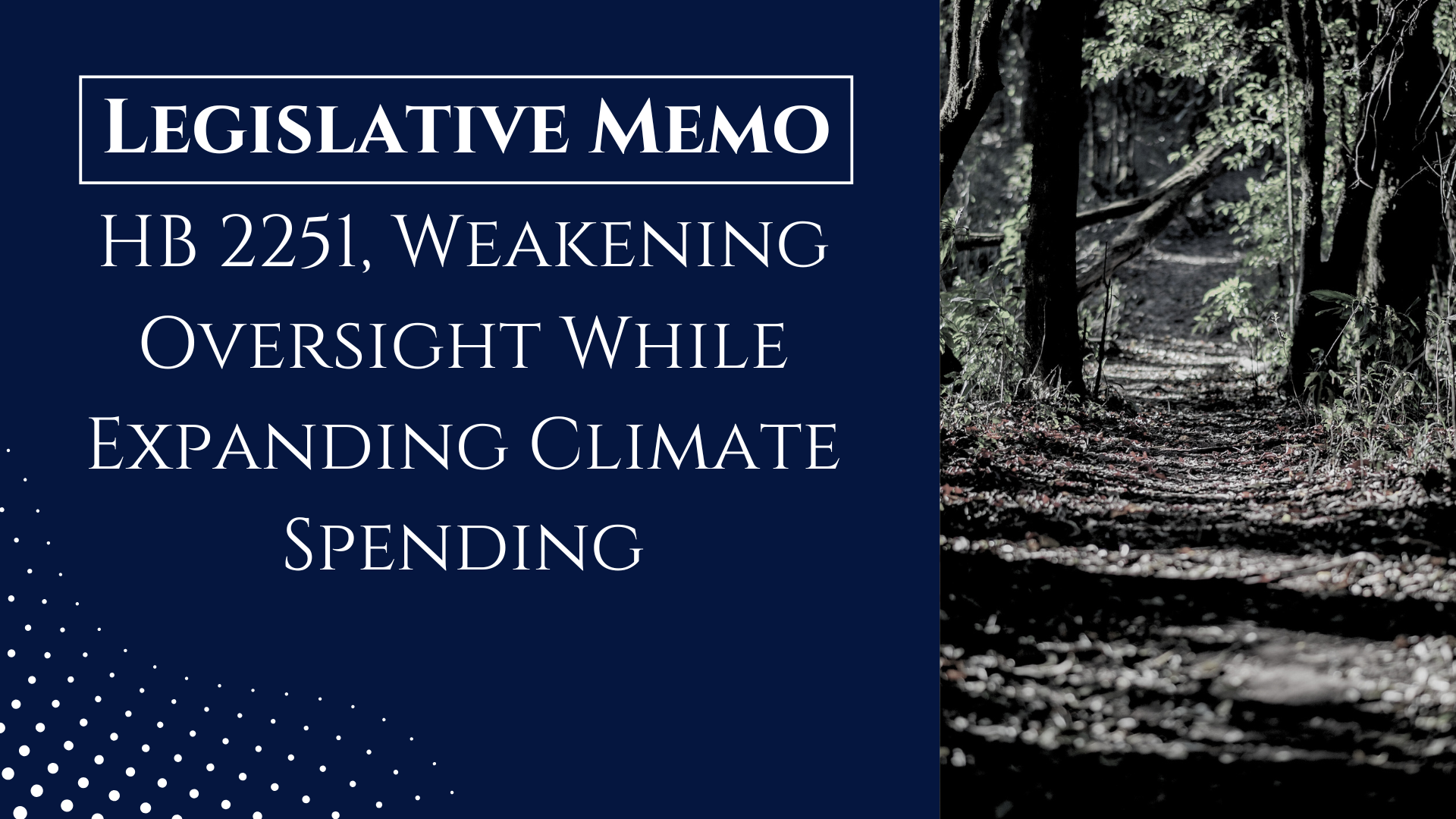Washington’s sales of EVs and plug-in hybrids plateaued during the first four months of 2025, keeping the state far below the state’s EV sales goals.
Data from the first four months of 2025 indicate that about 20.5 percent of new passenger vehicles sold in the state were either battery-electric or plug-in hybrid vehicles according to Washington State Department of Licensing data.
 The state is far from the goal of 35 percent of all new passenger vehicle sales being either EVs or plug-in hybrids next year. That goal, which increases to 100 percent of new sales by 2035, is part of California's Advanced Clean Car II standards that Washington signed on to. That may not turn out to be a problem because Congress recently repealed California’s waiver from the Clean Air Act waiver necessary to implement those rules. If President Trump signs that law, the requirement would go away.
The state is far from the goal of 35 percent of all new passenger vehicle sales being either EVs or plug-in hybrids next year. That goal, which increases to 100 percent of new sales by 2035, is part of California's Advanced Clean Car II standards that Washington signed on to. That may not turn out to be a problem because Congress recently repealed California’s waiver from the Clean Air Act waiver necessary to implement those rules. If President Trump signs that law, the requirement would go away.
Washington state is even farther behind meeting its own non-mandatory goal of 100% EV sales by 2030. The state’s own 2024 Transportation Electrification Strategy admits it “will be incredibly challenging” to meet that target. The authors of the report note that achieving the 2030 goal would be extremely expensive and come at “the expense of more effective short-term emissions reduction strategies.” Put simply, the legislature’s arbitrary 2030 goal would actually undermine other, more effective, ways to cut CO2 emissions.
The political attacks on Tesla appear to be having an impact both on the brand and on total EV sales. Tesla is still the top seller, with 44 percent of new EVs sold in Washington this year coming from the brand. That is a decline from last year when nearly 51 percent of new EVs were Teslas.
Tesla’s leadership in the EV sector creates problems for Washington politicians, many of whom now attack the company because it is led by Elon Musk but also claim to want to increase EV ownership. Attaching a stigma to the top EV brand will make it more difficult to increase ownership when the other comparable options are less attractive or more expensive.
Additionally, the legislature’s attack on Tesla may blow a $280 million hole in the state budget.
In the recent session, the legislature imposed a tax on Tesla’s credits generated as part of the California EV mandate. Under the rules, auto manufacturers generate credits for every EV they sell to comply with the sales requirements. Companies like Tesla generate more credits than they need and can sell them to other companies, like Honda, who are far short. The legislature placed a punitive tax on Tesla’s – and only Tesla’s – credits for the sin of complying too effectively with the requirements.
That tax was projected to generate about $280 million during the next four years. With the underlying requirements going away, so would the tax revenue, eliminating $78 million in tax revenue this biennium and $202 million during the next biennium.
The legislators who proposed that tax are now complaining that rescinding the waiver for California’s EV rules by Congress is political. Of course, the tax on Tesla was obviously political. Legislators in Washington were happy to undermine the EV mandates they claim to support by punishing the company that was most effective at meeting the goals.
Politics, not reality, is driving Washington’s policies regarding EVs. Even with the massive spending on EV charging stations, the big increase in the price of gas due to the CO2 tax, literal payments to help people purchase EVs and numerous other inducements, electric vehicles are still an expensive way to reduce CO2 emissions of limited appeal. They are getting better (I anticipate buying one for my next car) but they are still essentially luxury cars.
As the state’s own report notes, fixating on meeting unreasonable and arbitrary EV targets set by politicians may actually undermine more effective efforts. The legislature needs to stop adding costly and duplicative laws and spending and focus on reducing CO2 emissions in ways that are cost effective. EV sales show the current path won’t work and it is time for legislatures to end their denial.






